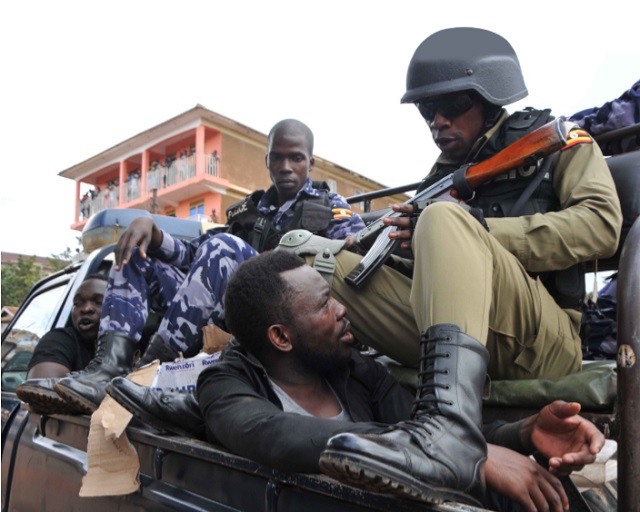
What Museveni fears about student strike
Kampala, Uganda | RONALD MUSOKE | Getting the military to brutally quell a students’ strike at Makerere University Kampala is a sign of what is coming ahead of the 2021 general election. That is what many political analysts The Independent has spoken to say.
Some of them point at public statements that senior military officers have been making to warn the public; especially the youth, against associating with People Power, the latest movement to threaten President Yoweri Museveni’s 33-year old grip on power.
Joel Ssenyonyi, the spokesperson of the People Power Movement told The Independent on Oct. 28 that the military raid on Makerere University was not a one-off attack. He linked it to the election of the university’s Guild President on the People Power ticket. He said the government could not easily defeat People Power because “it is a movement of Ugandans who are dissatisfied with the status quo and want change.”
“The People Power movement is everywhere; it is in government institutions, it is in the police, in the army,” he said.
“For the military to raid students’ halls of residence and beat up students who were sleeping is extremely sad,” he added, “If President Museveni says he is better than past regimes he needs to prove so.”
Dr. Patrick Wakida, the executive director of Research World International, a Kampala-based polling firm told The Independent that the military risks losing its position as a guarantor of peace in the country.
“The military should take a position which is to remain a guarantor of Uganda’s security and peace; once you begin to warn the youth then you have taken a position because the youth have a position.”
Wakida, who is a member of the opposition Forum for Democratic Change (FDC) party says the military continues showing sides; especially whenever a general election is around the corner.
“A country’s military is a guarantor of peace and stability. Once, a guarantor begins to engage in partisan comments then he or she loses that role. You, therefore, become part of the problem,” he said.
Wakida spoke on Oct.25, three days after heavily armed mean-looking soldiers started daily attacks on students with batons, teargas and live gunfire.
What started on Oct.22 as a peaceful march by a handful of students, mainly girls, waving placards and singing on the roads within the university was met with brutal military force. Many students were beaten and others arrested and detained in police cells.
One of the leaders of the protest, Siperia Mollie Saasiraabo, a female guild councilor from the School of Psychology was attacked by unidentified people on the night of Oct. 22 and ended up admitted unconscious at Mengo Hospital.
But it was the television images on the cold and rainy evening of Oct. 24 that shocked the nation. Soldiers of the national army were shown breaking doors in Lumumba Hall, one of the men’s halls of residence at the university.
The soldiers went on a beating spree; indiscriminately dragging students out of their rooms and whipping them and vandalizing their property. Television sets were shattered and electric kettles, cups, plates, tables and other gadgets smashed. In one video, the soldiers are seen battering a visibly disabled student with wooden crutches. The soldiers beat him until they fractured his arm at the elbow. The student, James Sebidde’s wailing about his disability could not stop the battering.
And when the student leaders called a press conference to speak about the brutality, the military attacked the meeting, dispersed it, and beat up everyone; including the journalists.
“They unleashed the military everywhere,” said Ronald Kamusiime, a representative of students with disabilities.
The leaders of Makerere University Students Guild say the strike is over the university’s policy of incrementally raising tuition fees by 15% each year for new students.
“The 15 percent tuition increment policy was marred by the neglect of duty and gross abuse of power on the part of the committee members,” a statement by the student guild tribunal said on Oct.27.
It added: “Implementation of the impugned policy shall have the effect of placing education at Makerere University beyond the reach of the poor, thus neglecting the social-economic realities of the Ugandan community in particular and East Africa in general.”
 The Independent Uganda: You get the Truth we Pay the Price
The Independent Uganda: You get the Truth we Pay the Price



